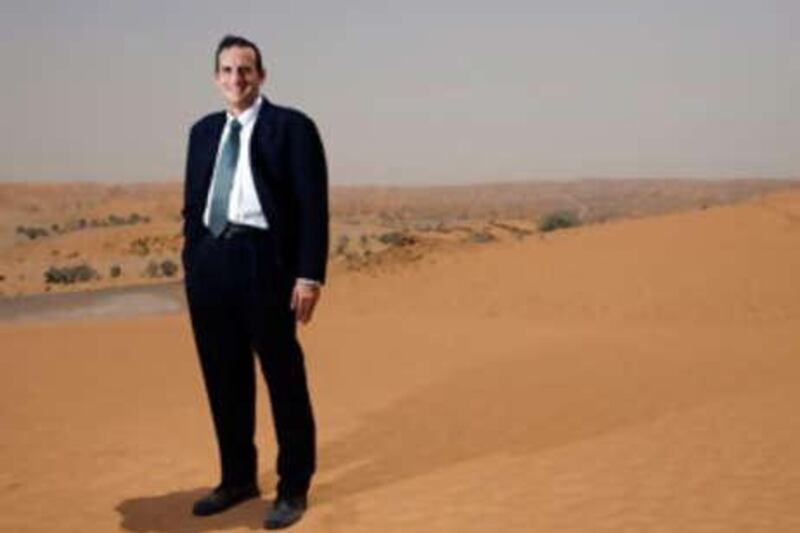RAS AL KHAIMAH // A barren stretch of sand dunes and desert scrub in Ras al Khaimah will be home to the UAE branch of one of the world's top science and engineering schools next year. Twenty years ago, it may have seemed inconceivable. But by autumn 2011, when the university will accept its first intake of students, the Ecole Polytechnique Fédérale de Lausanne (EPFL) will join scores of other academic institutions from overseas operating outposts in the Gulf.
At present it may not look like much, although the land is certainly beautiful: wild shrubs and short twisted trees hug deep orange sand dunes as far as the eye can see. "You should see it at sunset," says Dr Franco Vigliotti, the dean of EPFL Middle East. Unlike many other universities setting up shop in the region, the EPFL is dedicated solely to postgraduate students. "We're not going after the undergraduates," Patrick Aebischer, the president of the EPFL, said in February.
Speaking at the unveiling of a new library at the university's campus in Lausanne, he said: "If you look at the Gulf states, even Qatar is mainly undergraduate," he said. "So we thought we would take a leap and just do the research." Dr Vigliotti extolled the possibilities the location opens up. Local conditions, such as the harsh climate, afford opportunities for research into water use and conservation, and solar and other forms of renewable energy, he said.
"From the scientific perspective, RAK is an ideal location for hands-on research on some of the most important challenges of the century - energy, water and sustainable development," he said. EPFL currently plans to develop master's programmes in four areas, with a fifth under consideration. For now they will focus on wind engineering, energy, sustainable urban design, and water resource management.
One of the most exciting developments, according to Dr Vigliotti, is the plan to build an 100-metre wind tunnel that will allow scientists to study wind energy, air quality, atmospheric boundary layers, and structural wind engineering. "We don't have a wind tunnel like this [in Switzerland]," Dr Aebischer said. "This will be a unique wind tunnel where any scientist would want to go because they can do the most cutting-edge experiments.
"What you want to do is have special research infrastructure that brings in the best researchers in the world." Last week, the university unveiled plans for its first academic programmes, a master's degree in energy management and sustainability. This autumn, they will start running short courses for executives. The plans for EPFL Middle East are backed by Sheikh Saud bin Saqr Al Qassimi, the Crown Prince and Deputy Ruler of Ras Al Khaimah. "This is one of the best institutes of technology in the world in engineering and computer science, and that's what we wanted to bring over [to RAK]," said Dr Aebischer.
The university will undertake research projects in a number of fields, including its "Blue Brain" project, which attempts to model and simulate the brain as a means of understanding neural functioning. Dr Aebischer is not worried about attracting top talent, even though the last high-profile foreign university to open in RAK, George Mason, closed in 2009 after struggling to attract applicants who met its entry requirements. "I have 30 students who are ready to go over there, but this is because it's EPFL," Dr Aebischer said.
@Email:klewis@thenational.ae






